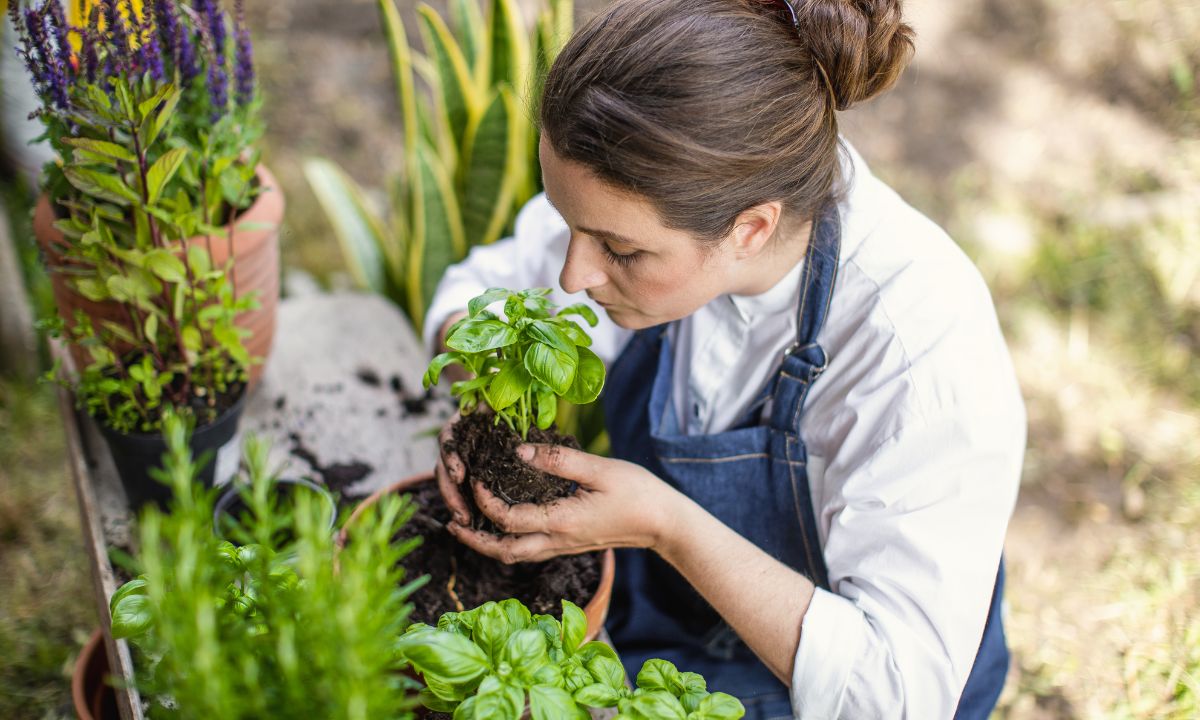 Growing your herbs not only enhances your meals but also adds natural beauty to your garden. Whether you have a small balcony or a sprawling backyard, cultivating herbs offers a rewarding and sustainable way to enrich your home. Let’s explore how to select the best herbs for your garden, provide them with optimal growing conditions, and even harvest and preserve your bounty. Plus, you’ll learn how to create flavorful herb-infused vinegars to enjoy all year long!
Growing your herbs not only enhances your meals but also adds natural beauty to your garden. Whether you have a small balcony or a sprawling backyard, cultivating herbs offers a rewarding and sustainable way to enrich your home. Let’s explore how to select the best herbs for your garden, provide them with optimal growing conditions, and even harvest and preserve your bounty. Plus, you’ll learn how to create flavorful herb-infused vinegars to enjoy all year long!
Selecting the Best Herbs for Your Garden
When choosing herbs for your garden, it’s essential to consider your climate, soil type, and how much space you have. Here are some beginner-friendly options:
- Basil: Ideal for warm climates and thrives in containers.
- Mint: Grows rapidly, but it’s best to plant it in pots to avoid spreading.
- Rosemary: A hardy herb that enjoys full sun and well-drained soil.
- Thyme: Perfect for sunny areas, and it can handle poor, dry soils.
- Parsley: A versatile herb that can grow in partial shade, making it a great option for less sunny spots.
Providing Optimal Growing Conditions
Each herb has its own specific needs, but some general tips can help ensure a thriving garden:
- Soil: Herbs prefer well-drained, fertile soil. Add compost to enrich your soil before planting.
- Sunlight: Most herbs thrive in full sun, which means at least six hours of sunlight per day. If you’re growing indoors, place your plants by a sunny window or use grow lights.
- Watering: Keep the soil moist, but avoid overwatering. Herbs like rosemary and thyme prefer drier soil, while basil enjoys more consistent moisture.
- Spacing: Allow enough space between plants to encourage healthy growth and prevent overcrowding, which can lead to disease.
Harvesting and Preserving Your Herbs
Harvesting your herbs at the right time is key to getting the best flavor:
- Timing: Harvest herbs in the morning after the dew has dried but before the heat of the day. This is when the essential oils are at their peak.
- Method: Use sharp scissors or garden shears to trim your herbs, and avoid removing more than a third of the plant at a time.
- Preserving: You can dry your herbs by hanging them in a cool, dark place, or freeze them in ice cube trays with water or olive oil. These methods help maintain their flavor for months.
Creating Delicious Herb-Infused Vinegars
Herb-infused vinegars are a fun and easy way to extend the use of your garden herbs. Here’s a simple guide:
- Ingredients: Use fresh herbs like basil, rosemary, thyme, or even a blend, and pair them with mild vinegar like white wine or apple cider vinegar.
- Method: Lightly bruise your herbs to release their oils, place them in a sterilized glass jar, and fill them with vinegar. Seal and store in a cool, dark place for 2-4 weeks, shaking occasionally.
- Usage: Strain the vinegar and store it in a clean bottle. Herb-infused vinegars make fantastic salad dressings, marinades, or gifts.
By choosing the right herbs, nurturing them with optimal growing conditions, and learning how to harvest and preserve them, you’re setting yourself up for a successful organic garden. Whether you’re interested in fresh herbs for cooking or homemade vinegar, a well-tended herb garden brings a touch of nature into your home.
